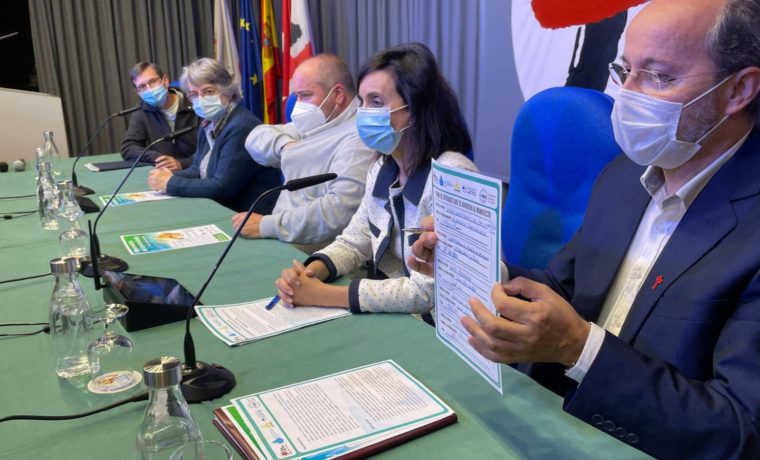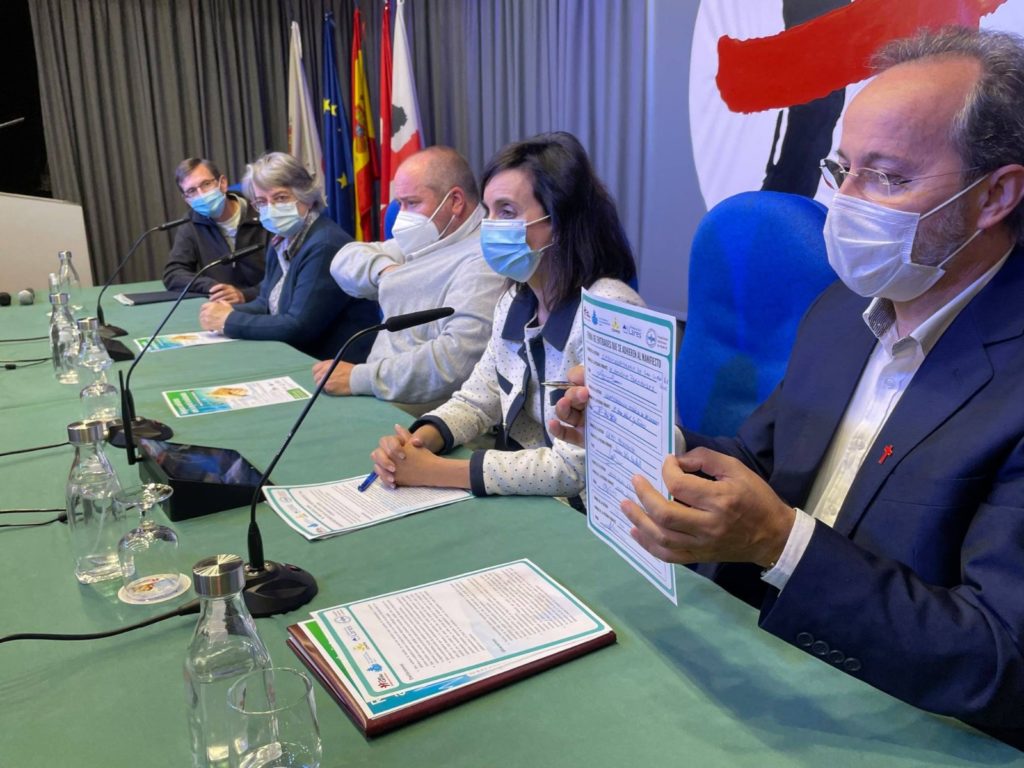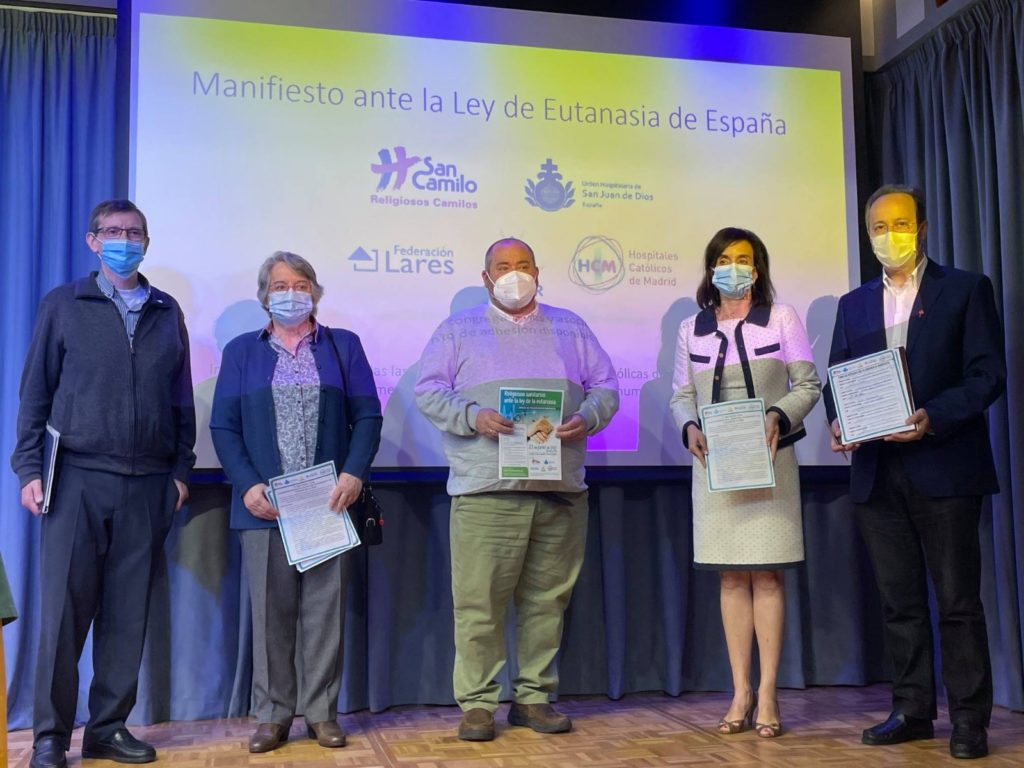On the occasion of the entry into force of the law on Euthanasia in Spain, the Camillian confreres of the Spanish province, together with the Hospitaller Order of St. John of God, the Catholic Hospitals of Madrid, the Spanish Conference of Religious (CONFER) and the National Federation LARES gathered for a day of reflection and sharing in which they presented their position on this delicate and central anthropological issue.
This event was organized at San Camillo centre in Tres Cantos (Madrid) and streamed on YouTube: Spanish religious and Catholic health institutions presented a joint manifesto with which they positioned themselves against the euthanasia law. Committed to the relief of suffering and the care for life, the organizers defend life as a fundamental good and value on which the intrinsic dignity of the person is based, for which respect for life is essential.
Respect for human dignity demands not to harm life or personal integrity, but to promote and care for life, working to alleviate suffering. In this context, palliative sedation correctly indicated, when other measures are ineffective, and administered with the prior consent of the patient, respects and humanizes the end-of-life process, mitigating intense suffering.
In the manifesto they affirm that society can make possible the integration and reception of people with fragile or very limited lives by dedicating sufficient health and social resources towards this. To this end, they offer their commitment to humanizing the care of people’s lives without seeking to lengthen or shorten them irresponsibly.
FEAR OF A CULTURE OF WASTE
As the general delegate of the Camillians committed to a dignified death for more than 400 years, José Carlos Bermejo promotes adherence to the manifesto. “We fear that the euthanasia law will discourage people who need care to live a dignified and meaningful life; that false interests generate a demand for help or the execution of euthanasia; that it will diminish social commitment to overcome unwanted loneliness as well as indiscriminate practices of improper sedation. In short, we fear a culture of discarding suffering and death.”
Therefore, Bermejo emphasized that San Camilo centre has included in its Code of Ethics the rejection of any approach to euthanasia: “As an institution belonging to the Catholic Church, we follow its moral guidelines and are committed to caring for and accompanying people at the end of life and their loved ones. Therefore, we offer holistic accompaniment, respecting the patients.”
This commitment is shared by the Hospitaller Order of St. John of God (Fatebenefratelli), a leader in palliative care and care for the chronically ill in Spain since its founding more than 30 years ago. The director of the Department of Ethics of San Juan de Dios, José María Galán, explains that “we perceive a growing social sensitivity to suffering at the end of life and want to say publicly that we remain committed to alleviating human pain and suffering, offering the effective application of high-quality palliative care that, at the same time, respects life without causing death. We are confident that our ability to welcome, accompany and care for people in the final stage of life will alleviate their suffering. And we are in solidarity with them through our work to help them face the last period of their lives, which can be experienced as the most difficult to live.”
Similarly, Amador Fernández, provincial of the Order of St. John of God, showed his support for the manifesto, stating that “we claim the good death as a space of dignity and we will continue to defend the fragile life and the accompaniment of patients and families.”
For his part, Juan Vela, president of the LARES Federation, denounced the fact that the conscientious objection of entities is not contemplated, “so this law generates indefensibility against workers by violating their fundamental rights.”
Olga Ginés, president of Catholic Hospitals, emphasized that “an adequate law on palliative care is indispensable”; finally, Rosa Abad, head of the socio-health department of CONFER, reiterated the inviolability of life and “the commitment of religious entities to care when one can no longer heal.”
After the reading of the manifesto, all participants invited other Congregations and Catholic associations dedicated to healthcare, as well as social and health professionals, to join them in this work of defence, protection and promotion of people who live the most fragile and significant juncture of their existence.

















Camillians on Facebook
Camillians on Twitter
Camillians on Instagram